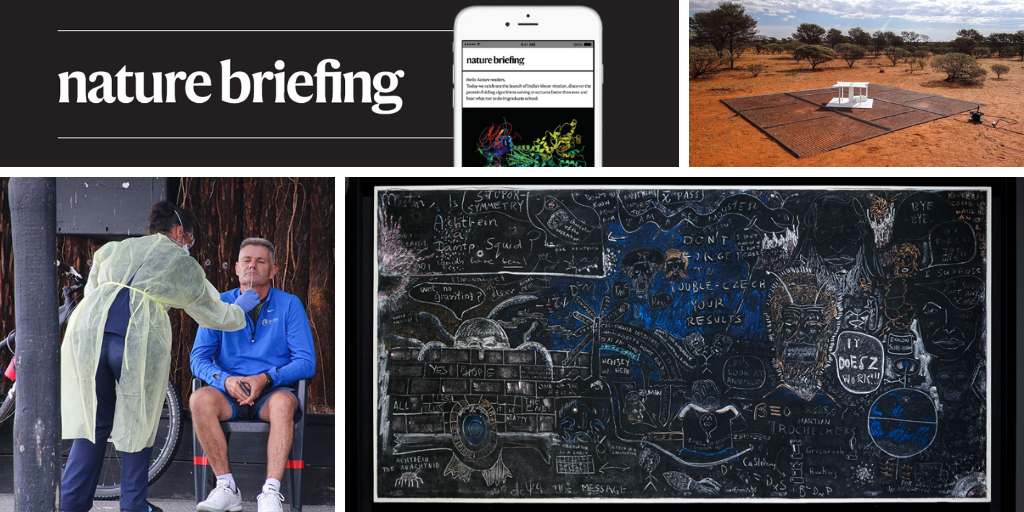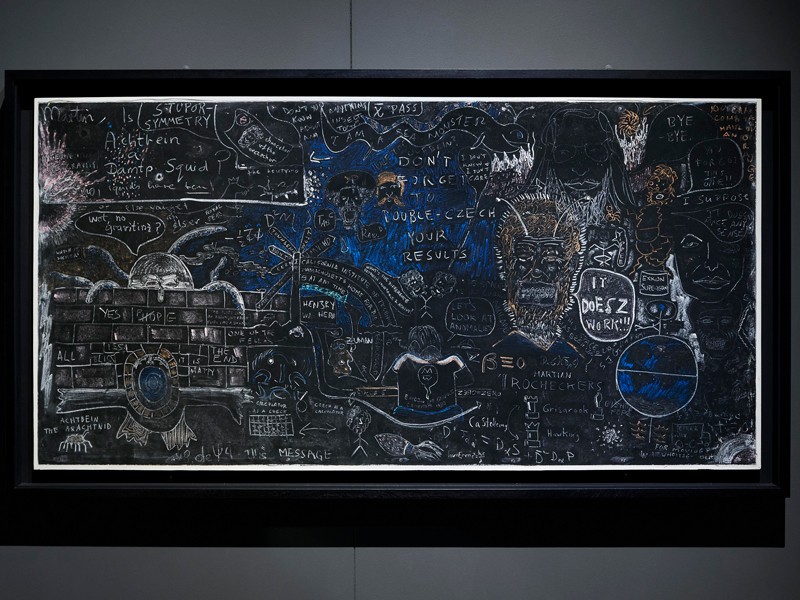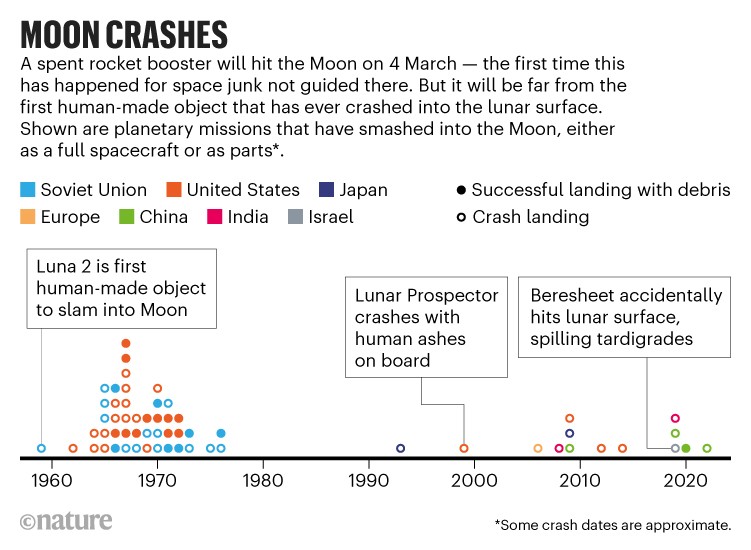Hello Nature readers, would you like to get this Briefing in your inbox free every day? Sign up here.
A temporary exhibition at the Science Museum in London showcases the contents of the late cosmologist Stephen Hawking’s office. This heavily graffitied blackboard is one of the objects on display. Hawking kept it as a treasured souvenir of an international conference that he organized in Cambridge, UK, in 1980. Participants doodled equations, cartoons and jokes all over the blackboard. Some of the scribbles refer to the name and nationality of co-organizer Martin Roček; others depict creatures named after mathematical tools.
See more of the month’s sharpest science shots, selected by Nature’s photo team.
The first major attempt to replicate striking evidence of the ‘cosmic dawn’ has led to more questions. In 2018, scientists discovered a blip in the remnant electromagnetic radiation that has permeated the Universe since the Big Bang. The blip might be an imprint of the first stars that ever formed, but the depth of the disruption was unexpected. To cross-check those findings, a team of researchers took the unprecedented approach of floating a detector on water — a reservoir in India with just the right salinity to smooth out any radio interference from the environment. The result: no sign of the unusual blip. But the search for the cosmic dawn is far from over. Radioastronomers are headed to Earth’s most isolated places, which are relatively undisturbed by radio interference, and possibly — eventually — to the far side of the Moon.
Reference: Nature Astronomy paper
Early evidence from Denmark suggests that previous infection with the BA.1 version of the Omicron coronavirus variant provides strong protection against its relative BA.2, which is growing in prevalence. Few people contracted BA.2 after infection with BA.1, which squares with similar findings in the United Kingdom. The findings brought one more piece of good news, says molecular epidemiologist and study author Troels Lillebaek: “It’s predominantly young, unvaccinated persons where we see this reinfection with BA.2. It kind of indicates that vaccination does give you some protection.”
Reference: medRxiv preprint
On 4 March, humanity will set a record for littering when an old rocket booster smashes into the far side of the Moon. It will be the first time that a piece of human-made space debris has hit a celestial body other than Earth without being aimed there. The booster is probably part of a rocket that launched a small Chinese spacecraft, Chang’e 5-T1, towards the Moon in 2014. Chang’e 5-T1 returned to Earth successfully, and the booster is thought to have been chaotically zipping around in space but is now caught in lunar gravity.
Features & opinion
‘Executable manuscripts’ can eliminate the app-switching two-step that happens when you copy your data from one program and paste them into another. Computational notebook systems such as R Markdown, Jupyter Book and Observable insert data as a document is rendered, ensuring that the final product is always up to date. And they have other benefits: executable documents can be version-controlled and automatically formatted to meet journal specifications.
Nature | 8 min read, with worked examples in R Markdown and Observable
Future quantum computers could crack the encryption algorithms that underpin our online security. In cybersecurity circles, they call it Q-day — the day when all encrypted communications, including any recorded messages from the past, become vulnerable. Computer scientists have created a crop of quantum-resistant cryptographic algorithms to fend off the danger. Discover more in this audio feature read by Nature’s Benjamin Thompson.
Five delightfully squidgy creatures are nominated for Mollusc of the Year 2022. The competition is run by the Loewe Centre for Translational Biodiversity Genomics in Germany, and the winner will get its whole genome sequenced. Will it be Cuba’s stunning painted snail (Polymita picta), surely one of the most beautiful snails in the world? Or perhaps the naval shipworm (Teredo navalis), the cheeky chappie that sunk Christopher Columbus’s ships near Jamaica? Cast your vote on the Loewe Centre’s website.
Don’t clam up on me — let me know what you think of this newsletter. Please send your feedback to [email protected].








More News
Could bird flu in cows lead to a human outbreak? Slow response worries scientists
US halts funding to controversial virus-hunting group: what researchers think
How high-fat diets feed breast cancer